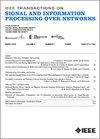针对数据异质性的集中/分散联合学习的本地化原点-二元方法
IF 3
3区 计算机科学
Q2 ENGINEERING, ELECTRICAL & ELECTRONIC
IEEE Transactions on Signal and Information Processing over Networks
Pub Date : 2023-12-25
DOI:10.1109/TSIPN.2023.3343616
引用次数: 0
摘要
广义边缘共识学习(G-ECL)是一种求解损失和最小化问题的基本二元方法。我们提出了本地广义边缘共识学习(Local G-ECL),作为之前 G-ECL 的扩展,旨在成为一种分散/集中 FL 算法,对具有大量本地更新的异构数据集具有鲁棒性。我们的贡献如下(C1) 在理论梯度规范收敛分析方面取得成功,几乎不受数据异质性的影响;(C2) 证明了我们的原始双本地 G-ECL 算法与集中式设置下的纯原始随机控制平均(SCAFFOLD)算法之间的等价性,其中忽略了每轮初始本地模型的差异。使用图像分类测试进行的数值实验验证了本地 G-ECL 对具有大量本地更新的异构数据的鲁棒性。本文章由计算机程序翻译,如有差异,请以英文原文为准。
A Localized Primal-Dual Method for Centralized/Decentralized Federated Learning Robust to Data Heterogeneity
Generalized Edge-Consensus Learning (G-ECL) is a primal-dual method to solve loss-sum minimization problems. We propose Local Generalized Edge-Consensus Learning (Local G-ECL) as an extension of previous G-ECL, aiming to be a decentralized/centralized FL algorithm robust to heterogeneous data sets with a large number of local updates. Our contributions are as follows: (C1) success in theoretical gradient norm convergence analysis nearly independently of data heterogeneity, and (C2) equivalency proof between our primal-dual Local G-ECL and a pure primal Stochastic Controlled Averaging (SCAFFOLD) algorithm in centralized settings, where the difference in the initial local model for each round is ignored. Numerical experiments using image classification tests validated that Local G-ECL is robust to heterogeneous data with a large number of local updates.
求助全文
通过发布文献求助,成功后即可免费获取论文全文。
去求助
来源期刊

IEEE Transactions on Signal and Information Processing over Networks
Computer Science-Computer Networks and Communications
CiteScore
5.80
自引率
12.50%
发文量
56
期刊介绍:
The IEEE Transactions on Signal and Information Processing over Networks publishes high-quality papers that extend the classical notions of processing of signals defined over vector spaces (e.g. time and space) to processing of signals and information (data) defined over networks, potentially dynamically varying. In signal processing over networks, the topology of the network may define structural relationships in the data, or may constrain processing of the data. Topics include distributed algorithms for filtering, detection, estimation, adaptation and learning, model selection, data fusion, and diffusion or evolution of information over such networks, and applications of distributed signal processing.
 求助内容:
求助内容: 应助结果提醒方式:
应助结果提醒方式:


